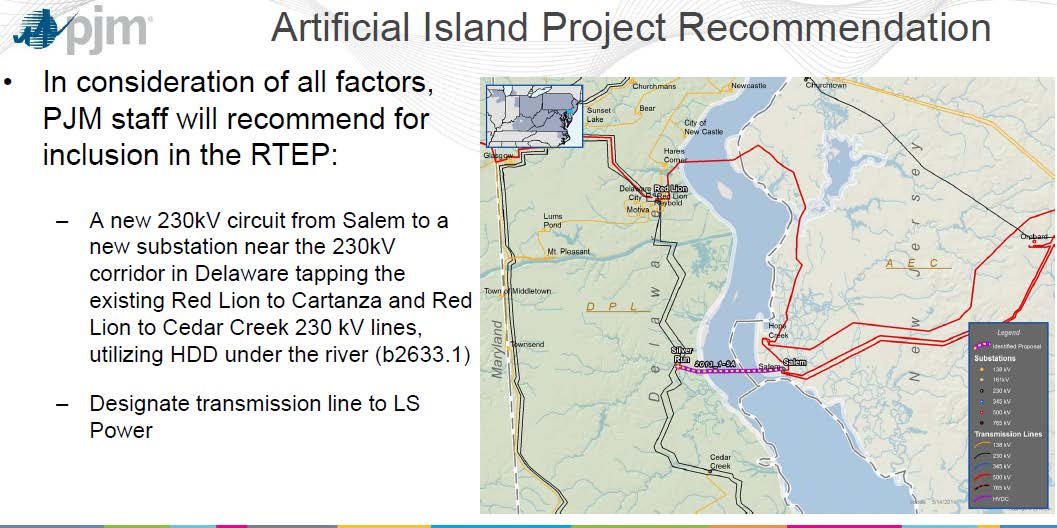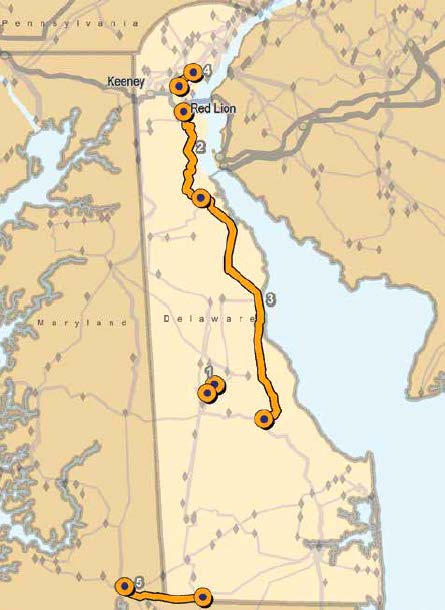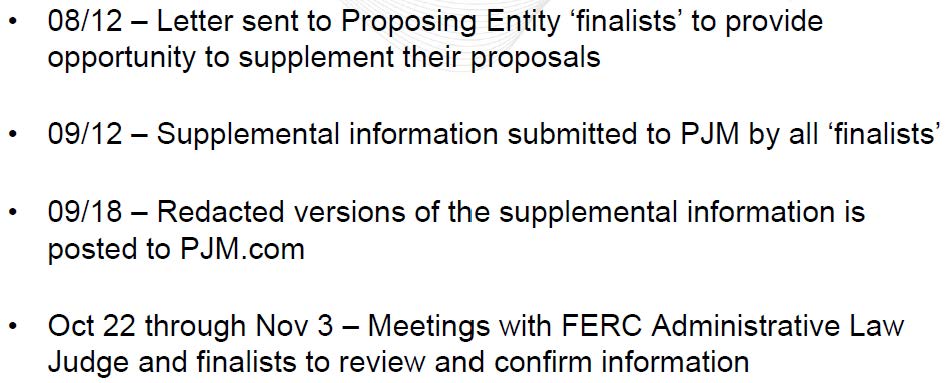Will Delaware, like Illinois, sue FERC and PJM?
July 30th, 2015
Sure hope so — they’ve got it coming. Cost apportionment is a big issue, and for PJM, well, they’d taken their cost apportionment dream to FERC, got the FERC rubber stamp, but it seems they’ve not done a good job of it, according to the Federal Court — that’s old news:
Fast forward to today — turns out Delaware’s Gov. Markell is objecting to costs assessed to Delaware ratepayers, (though I’m not seeing any objection to the project itself coming out of Delaware). DOH! He’d better, this project does nothing for Delaware.
Here’s the PJM Planning doc that tells all:
Note on the first page the statement of need, of why this project is wanted — this is really important:
PJM specified that solution proposals must improve stability margins, reduce Artificial Island MVAR output requirements and address high voltage reliability issues.
So let me get this straight — they’re having stability and reliability issues and PSEG wants to reduce Artificial Island MVAR output requirements, and want to charge Delaware ratepayers for this? PUH-LEEZE… This is a benefit to PSEG, not Delmarva…
And look what our big-coal friends at ODEC have to say:
ODEC letter regarding Artificial Island 7-29-2015
This project taps into the new line that was built not long ago:
Delaware has no regulation of transmission need or siting — so utilities can pretty much do whatever they want. Further, it’s a FERC tariff, so the state doesn’t have anything to say about it going into the rates, and cost apportionment. Great, just great. So now Markell is objecting? It’s a little late…
Delaware needs legislation — legislation like a “Power Plant Siting Act” and a legislative requirement of a need determination for whatever infrastructure they think they want. They need legislation specifying that only Delaware utilities can own and operate transmission in Delaware (see House Bill 387 from the 2014 session). Here’s what House Bill 387 would have done (It would have been an effective good start, protective of Delaware!), establish that a utility wanting to construct and operate transmission demonstrate NEED! Here’s the wording, though it would require quite a bit more, and some solid rules, to be effective:
a.the need for the proposed transmission line;
b.the impact on the reliability of the transmission grid
c.the long term viability of the public utility proposing the line;
d.the technical engineering and operating expertise of the public utility;
e.the technology and design proposed for the new transmission line; and
f.the economic and safety impact of the proposed transmission line.
Here’s the report about this PJM approval from Jeff Montgomery, News Journal:
Disputed cost-shares remain in plan for new power line
Note this snippet:
And here’s the schedule for this project going forward from the PJM Board meeting yesterday:
Seems there’s an opportunity before the FERC ALJ. But before then? What is Delaware going to do? Well, take a look at what Illinois did when it didn’t appreciate the FERC Cost Apportionment scheme — they sued FERC and won, based on the notion that if they weren’t benefitting, they shouldn’t be the ones paying:
The FERC Cost Apportionment scheme was remanded, and it’s in settlement negotiations right now. What is Delaware doing in that docket? To review the public postings, go HERE and search for FERC Docket EL05-121. The next settlement conference is Thursday, August 6, 2015, starting at 10:15 a.m. in a hearing room at FERC HQ. Delaware is represented in this, at least there are Delaware PSC staff listed on the service list, Janis Dillard, John Farber, and Robert Howatt. So what are they doing about this cost apportionment scheme? Seems this settlement conference is just the place for raising a stink about the PJM cost apportionment scheme, to raise issues of “benefits” and “cause cost, pay” arguments. Are they showing up and speaking up for Delaware?


